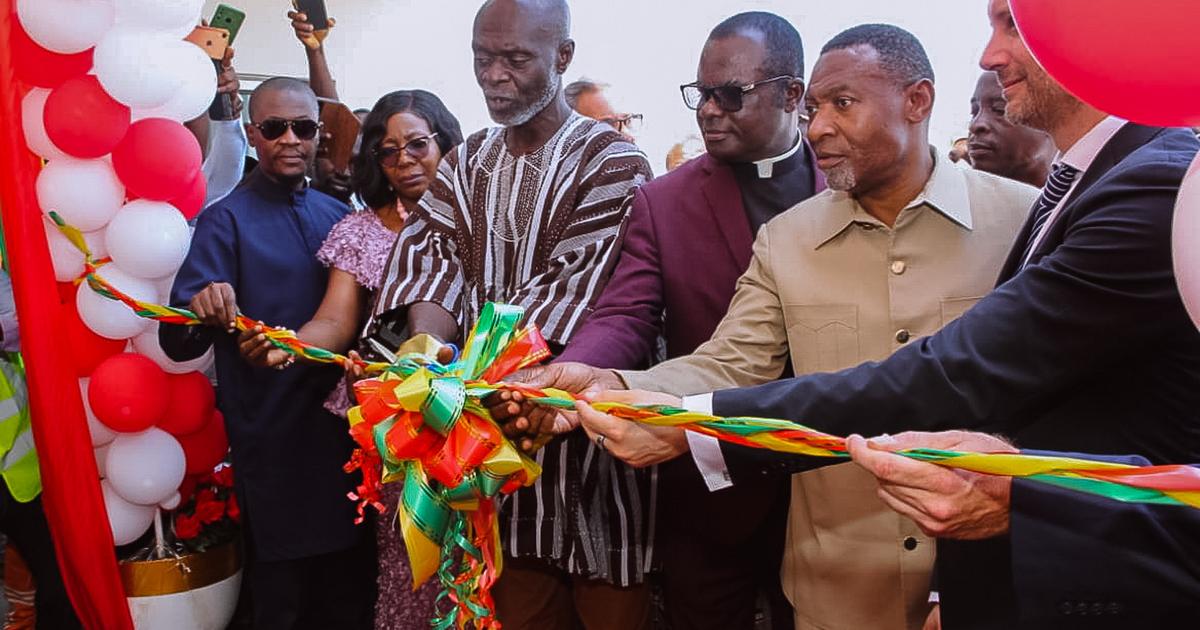A €20-million waste water treatment plant has been commissioned at Gbalahi, a suburb of Tamale in Ghana.
The project, which was launched by Jospong Group of Companies (JGC), is a 1,000 cubic metres capacity plant.
The facility will treat and convert the wastewater that is produced by faecal fluids in the city and its surrounding areas into water that can be reused. Additionally, the plant will recover and recycle the organic component of the waste into compost in order to encourage more farming activities in the area.
Sewerage Systems Ghana Limited (SSGL), a subsidiary of JGC, was going to be in charge of managing the project, even though the funding was coming from the government of Hungary.
It comprises of a solid waste facility, as well as a restaurant, a clinic, a cafeteria, lecture halls, an administration building, a conference hall, and other auxiliary facilities.
It is anticipated that the facility will provide a sustainable solution to the problem of liquid waste within the metropolitan area, the Sagnarigu Municipality, and other neighbouring settlements by making use of a comprehensive European treatment technology in a way that is both efficient and kind to the environment.
In addition to this, it would convert solid waste into useful materials such as compost, plastics, metals, and paper, amongst other things, with the by-product being utilised as organic fertiliser.
It is anticipated that this will result in the creation of around one thousand jobs for the people, both directly and indirectly.
Read also: Ethiopian Startup Kubik secures $3.34M to build homes from waste
Waste water plant for educational purposes
The Chief Operation Officer of the JGC, Florence Larbi, who read the address of the Executive Chairman of the JGC, Joseph Siaw Agyepong, stated that the facility will act as a research hub for university students to perform study into how garbage may be converted into energy-generating ventures. This was stated by the Chief Operation Officer of the JGC.
“At this time, the region generates 183,000 tonnes of waste annually, the vast majority of which is dumped in landfills, making it dangerous for the populace,” he continued.
Mr. Agyepong expressed his gratitude to both the government of Ghana and the government of Hungary for giving the essential support for the execution of the project. At the same time, he reaffirmed the company’s commitment to ensuring that the country is clean and that garbage is managed in an appropriate manner.
Benefit of the plant Ghana’s waste management system
The Minister for the Northern Region, Shani Alhassan Shaibu, stated that the intervention was in accordance with the government’s objective of establishing an effective waste management system throughout the country.
He added that Tamale is the fourth largest city in Ghana, with a total population of 374,744 and an annual population growth rate of 3.5 percent.
“The Tamale Metropolis is a lively city that is rapidly expanding, with a surge in human population as well as extremely significant growth in physical infrastructure and other spheres of human activity.
“The increase in population obviously translates into a corresponding increase in the amount of faecal matter generated in the city,” he added. “This has been the case for quite some time.”
The minister was optimistic that the plant will help to reduce the amount of contaminated water, improve living circumstances, and contribute to an overall improvement in the health and well-being of the people who live in Tamale and the surrounding areas.




